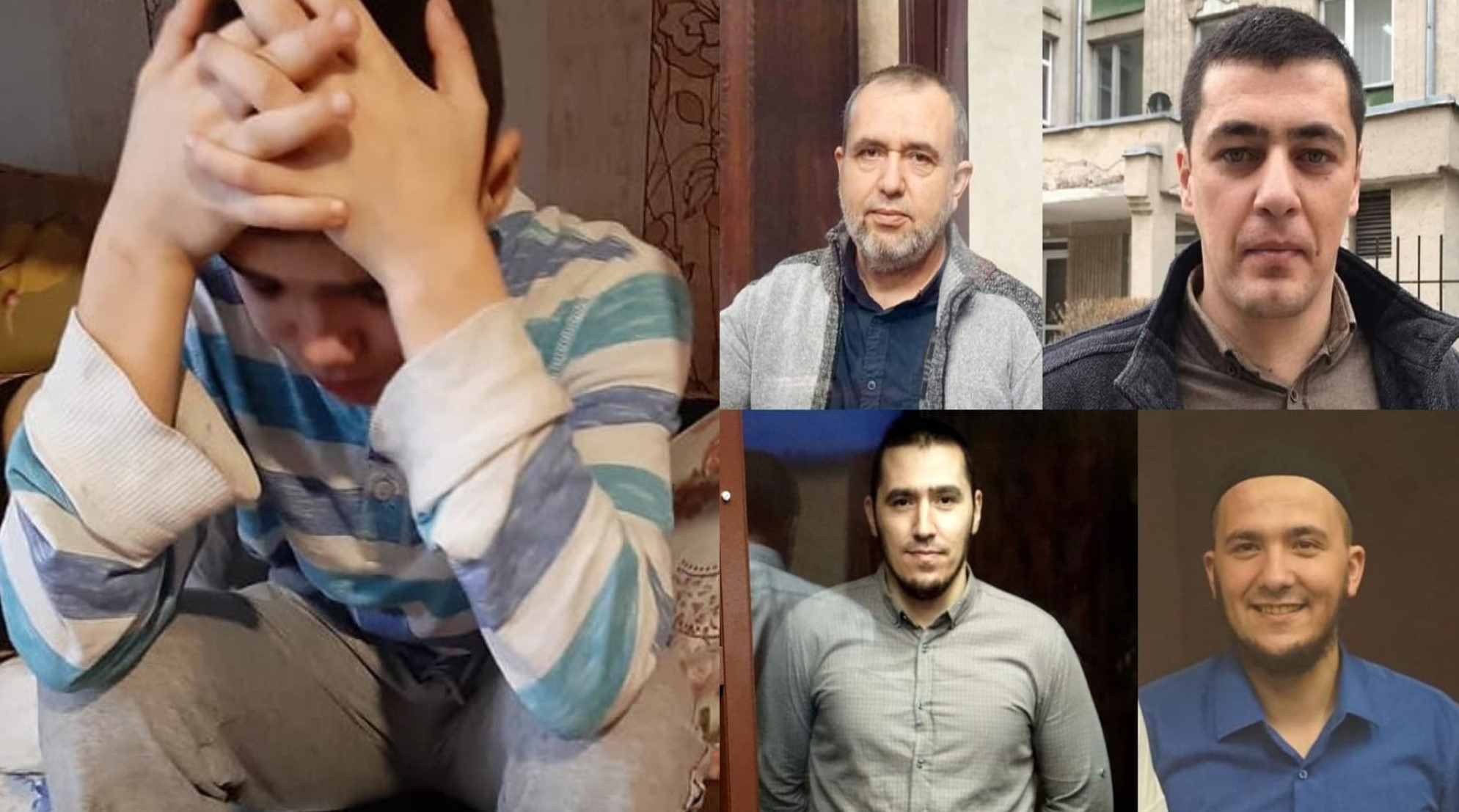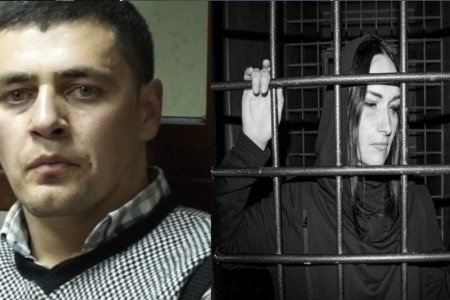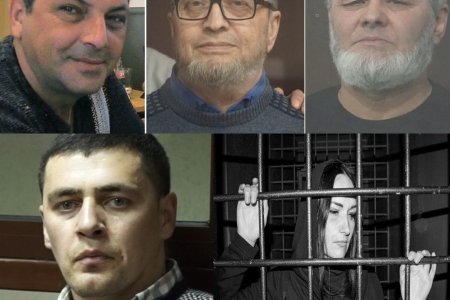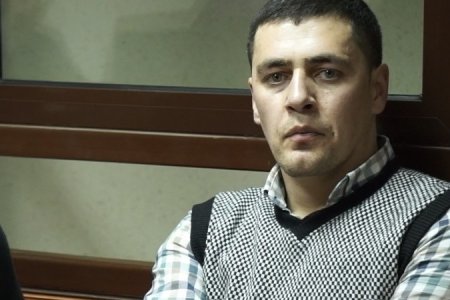
51-year-old Rustem Seitmemetov has undergone an operation after suffering cardiac arrest in the Russian prison, where the recognized Crimean Tatar political prisoner is serving a 13-year sentence. The conditions in all Russian penal institutions are appalling, and it is no accident that the heart attack occurred when Seitmemetov and other prisoners were forced to do physical exercises in their cell in order to keep warm.
Seitmemetov’s family have learned that he was taken ill on 15 May, after being moved from quarantine to a cell where it was extremely cold. It was while he and the other prisoners were exercising to get a bit warmer that Rustem suddenly lost consciousness. The prison guards did, at least, react and called an ambulance, with the medics deciding to take Seitmemetov to the regional cardiology centre. It was there that he was diagnosed as having suffered a heart attack. He was operated upon, with the surgeons using a stent to broaden a narrowed blood vessel which was blocking the flow of blood to the heart.
Unfortunately, he moved after the operation to the prison hospital at SIZO-9 in Dimitrovgrad (the city in Ulyanovsk oblast where he is held prisoner). The prison medics give him nitro-glycerine and some other unidentified tablets, and also measure his blood pressure, etc., but do not tell him what the readings are. When he asked why they won’t tell him, they simply refused to answer. He is able to move about without assistance but his temperature rises and he suffers fever symptoms in the evening.
Russia is holding all Crimean Tatar and other Ukrainian political prisoners in appalling conditions which are, as Ukraine’s Human Rights Ombudsperson Dmytro Lubinets pointed out, tantamount to torture. Rustem Seitmemetov (b. 1973) is still relatively young, however four years of Russian captivity will have taken its toll on the 51-year-old.
Russia is illegally holding Rustem Seitmemetov (b. 1973); his nephews – Seitumer Seitumerov (1988) and Osman Seitumerov (b. 1992), and Crimean Solidarity civic journalist Amet Suleimanov (b. 1984) prisoner in the Russian Federation, thousands of kilometres away from their families and from Crimea. All such ‘trials’ and sentences are in flagrant violation of international law and the human rights norms which Russia has committed itself to observe. All of the men have been recognized by the Memorial Support for Political Prisoners Project as political prisoners, and their release has been repeatedly demanded by the UN General Assembly, OSCE, and other international bodies. In this case, however, Russia is also infringing its own legislation through the effective death sentence it is inflicting on Amet Suleimanov who had a grave heart condition even before his arrest and should never have been imprisoned.
Fake ‘terrorism’ charges
Russia is using a flawed and secretive Supreme Court ruling from 2003 as a weapon which it increasingly uses against Crimean Tatar civic activists and journalists, especially those involved in the Crimean Solidarity human rights movement. The 2003 ruling labelled as ‘terrorist’ the peaceful (albeit controversial) transnational Hizb ut-Tahrir Muslim organization, which is legal in Ukraine and not known to have committed acts of terror anywhere in the world. No proof is even needed of actual involvement in Hizb ut-Tahrir since the FSB invariably plant ‘prohibited literature’ which they then claim to have found during armed searches which lawyers are pretended from being that. They then send transcripts of illicitly taped and quite innocuous conversations about religion, Russian persecution, events in Crimea to their own FSB-‘experts’ who claim that this or that word ‘proves’ involvement in Hizb ut-Tahrir. They also recruit ‘anonymous witnesses’ who invariably repeat the indictment, while proving suspiciously unable to provide any other details about the defendants whom they claim to have known well. All of this is seen and clearly understood by the ‘judges’ who prevent the defence from asking questions which demonstrate that such ‘witnesses’ are lying and that the ‘experts’ have no competence to express an opinion.
Seitumer Seitumerov was charged under the more serious Article 205.5 § 1 of Russia’s criminal code with ‘organizing a Hizb ut-Tahrir group’, while Osman Seitumerov; Rustem Seitmemetov and Amet Suleimanov were charged with ‘involvement’ in this entirely unproven ‘group’, under Article 205.5 § 2. All of the men were also accused of ‘planning a violent uprising’ (Article 278) although even the FSB admitted that not one of them was suspected of actions or direct plans to commit any action aimed at ‘overthrowing the Russian constitutional order’
The three family members were immediately remanded in custody and remain imprisoned to this day. Nor was this the limit to Russia’s torture of the family of renowned Crimean Tatar historian Shukri Seitumerov, with his last son, 23-year-old Abdulmedzhit Seitumerov arrested in August 2023 on essentially identical charges.
Amet Suleimanov was held under house arrest, ‘attending’ the ‘trial’ via video link from occupied Crimea. Despite the flawed charges, non-existent evidence and the fact that any custodial sentence would kill one of the men, prosecutor Yevgeny Nadolinsky demanded horrific sentences against all four men, including 13 years in the case of Suleimanov (whom he had previously tried to get remanded in custody). On 29 October 2021, three ‘judges’ from the Southern District Military Court in Rostov (Russia) - Igor Kostin (presiding judge); Roman Plisko and Yevgeny Zviagin – largely obliged, sentencing Seitumer Seitumerov to 17 years; Osman Seitumerov to 14 years; Rustem Seitmemetov to 13 years and Amet Suleimanov to 12 years. All of these sentences were for the worst of Russian penal institutions, with the first 3.5 years to be spent in a prison, where the conditions are most shocking.
These sentences were upheld on 9 February 2023, by ‘judge’ Aleksandr Aleksandrovich Mordovin from the Military Court of Appeal in Vlasikha (Moscow region).
Despite an express order from the UN Human Rights Committee and acknowledgement by Russian doctors of his critical state of health, Amet Suleimanov has been imprisoned since February 2023. See: Russia admits to passing death sentence against imprisoned Crimean Tatar civic journalist Amet Suleimanov



